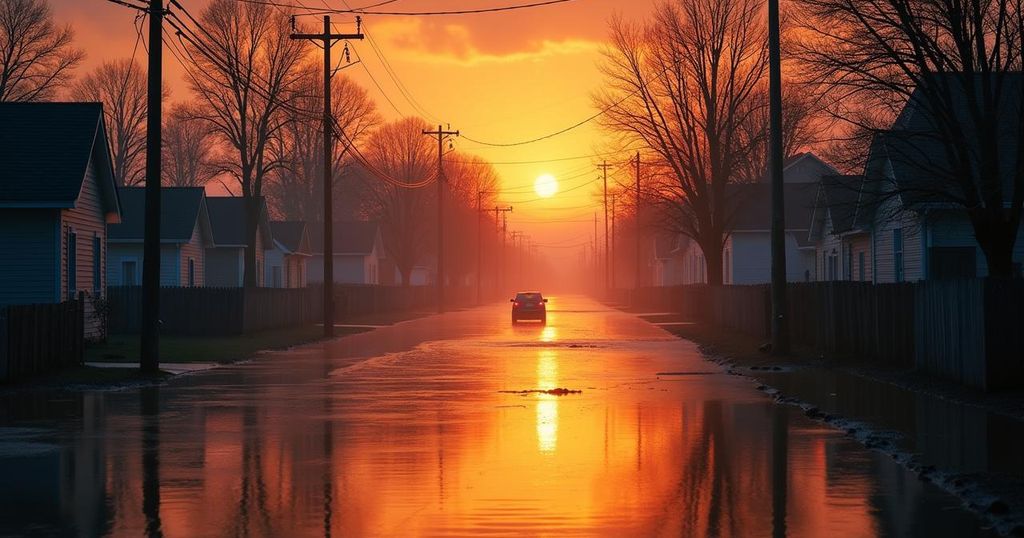Hurricane Helene has caused extensive flooding across North Carolina, leading to displacements, multiple fatalities, and emergency response challenges. Buncombe County has experienced severe devastation, with officials comparing the disaster to “Buncombe County’s own Hurricane Katrina”. The storm’s impact has elicited a robust response from local and federal authorities as communities grapple with the aftermath.
ASHEVILLE, N.C. – The town of Swannanoa, North Carolina, has been devastated by Hurricane Helene, which made landfall on Thursday. Beverly and Baxter Eller, who had resided in their home for 37 years without experiencing flooding, found themselves displaced as floodwaters swept away their vehicle, forcing them to take refuge in their car along with their dog. “We are just in survival mode,” Beverly Eller reported. The extensive storm impacted not only Swannanoa but also various towns within western North Carolina, resulting in homes being uprooted and landslides blocking access to communities. Avril Pinder, Buncombe County’s manager, likened the situation to “Buncombe County’s own Hurricane Katrina.” As the storm’s toll became apparent, officials noted at least 49 fatalities across five states, with South Carolina experiencing the greatest loss. In Buncombe County, emergency responders faced overwhelming challenges, conducting over 150 rescues in severe conditions while many individuals remained unaccounted for. The community organized emergency shelters and extended assistance efforts, even as communication was hindered by power and cell service outages. Ryan Cole, the assistant emergency services director of Buncombe County, stated, “We have biblical devastation through the county. We have biblical flooding here.” The severity of the storm was exemplified by the record rainfall, with some areas receiving nearly 30 inches of rain in just a few days. As rescue operations continued, residents reported feeling anxious about their loved ones’ safety. In the agricultural center, shelter operations were bustling with evacuees, highlighting the urgent needs for food, water, and emotional support. Amidst the chaos, the federal response began, as President Biden dispatched FEMA officials to assist in recovery efforts. As of late morning on Saturday, numerous structures, infrastructure, and lives had been irrevocably altered due to the storm, with authorities across the southeastern United States still grappling with flooding, power outages, and blocked access routes. The extensive damage and loss faced by the community will require significant recovery resources and efforts in the days to come.
Hurricane Helene struck the southeastern United States in late September 2024, resulting in catastrophic flooding particularly affecting North Carolina. This storm marked a significant weather event, reminiscent of other high-impact hurricanes in American history, and raised concerns about emergency preparedness and the resilience of communities facing natural disasters. The aftermath revealed severe public safety challenges, including the need for rescue operations amid communication breakdowns, as well as the emotional toll on families separated by the disaster. As local and federal resources mobilized, the extent of the damage prompted discussions surrounding recovery efforts and infrastructure resilience.
Hurricane Helene has brought unprecedented destruction to North Carolina, particularly in the western region where towns like Swannanoa have suffered significant flooding and displacement. As emergency responders navigate the challenging conditions and families await news of their loved ones, the storm’s toll continues to rise. The road to recovery is an uphill battle that will require coordinated assistance from local, state, and federal agencies to rebuild and support affected communities.
Original Source: www.washingtonpost.com







